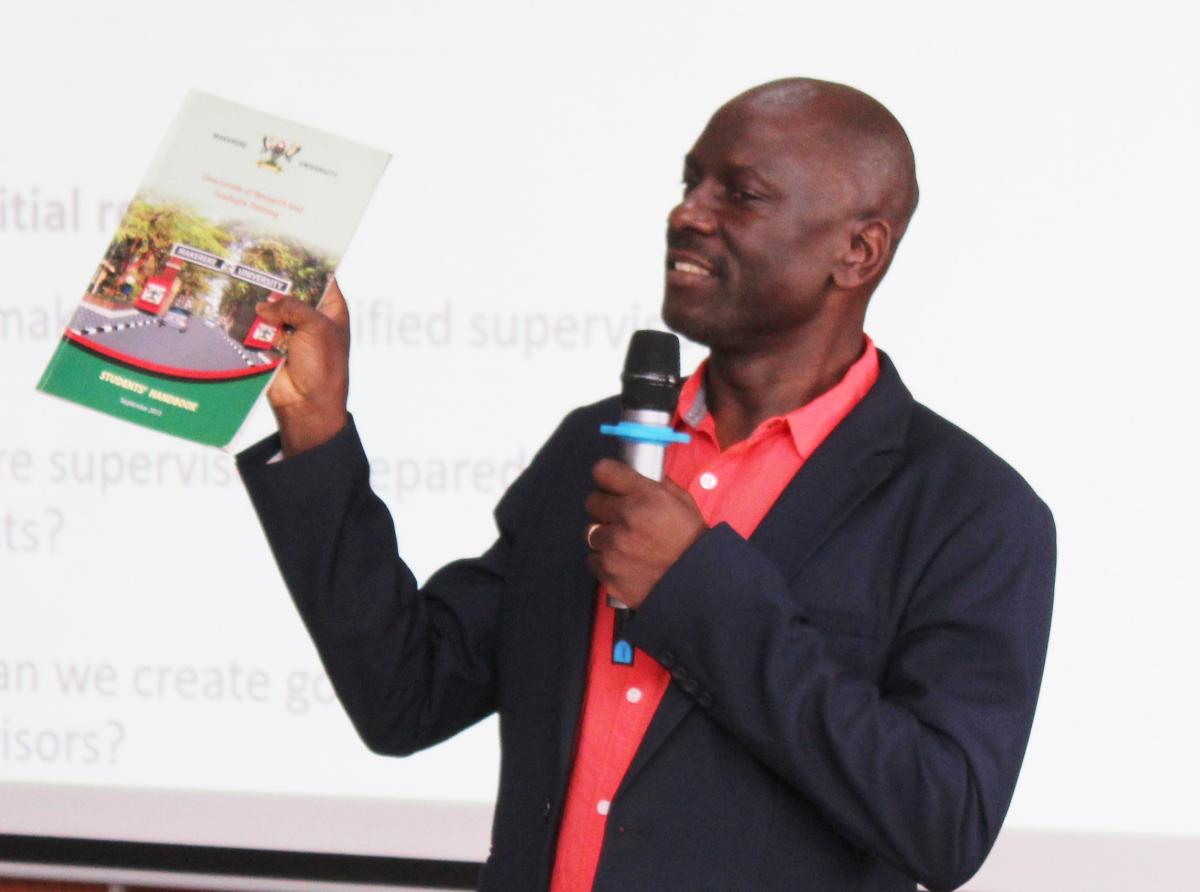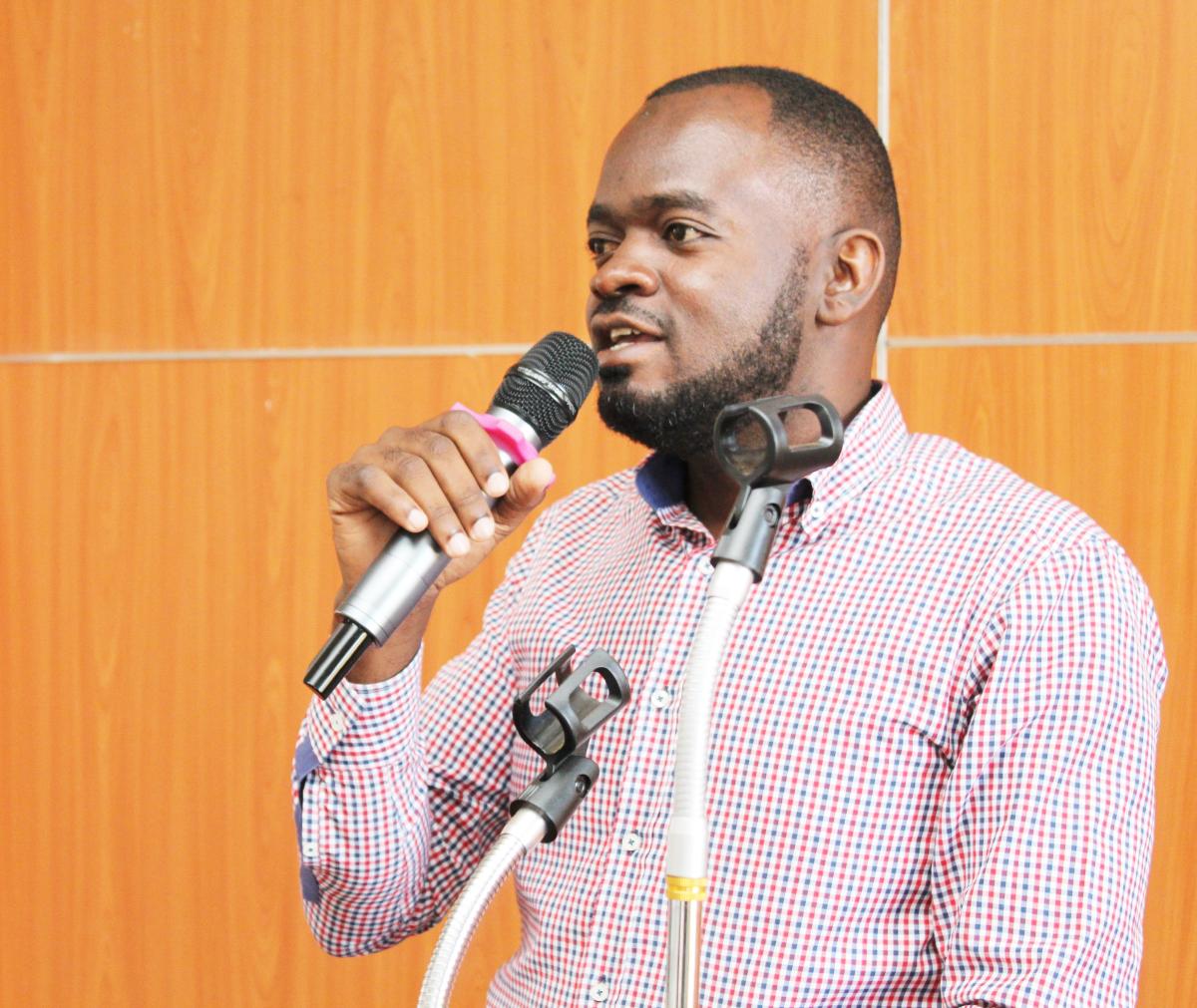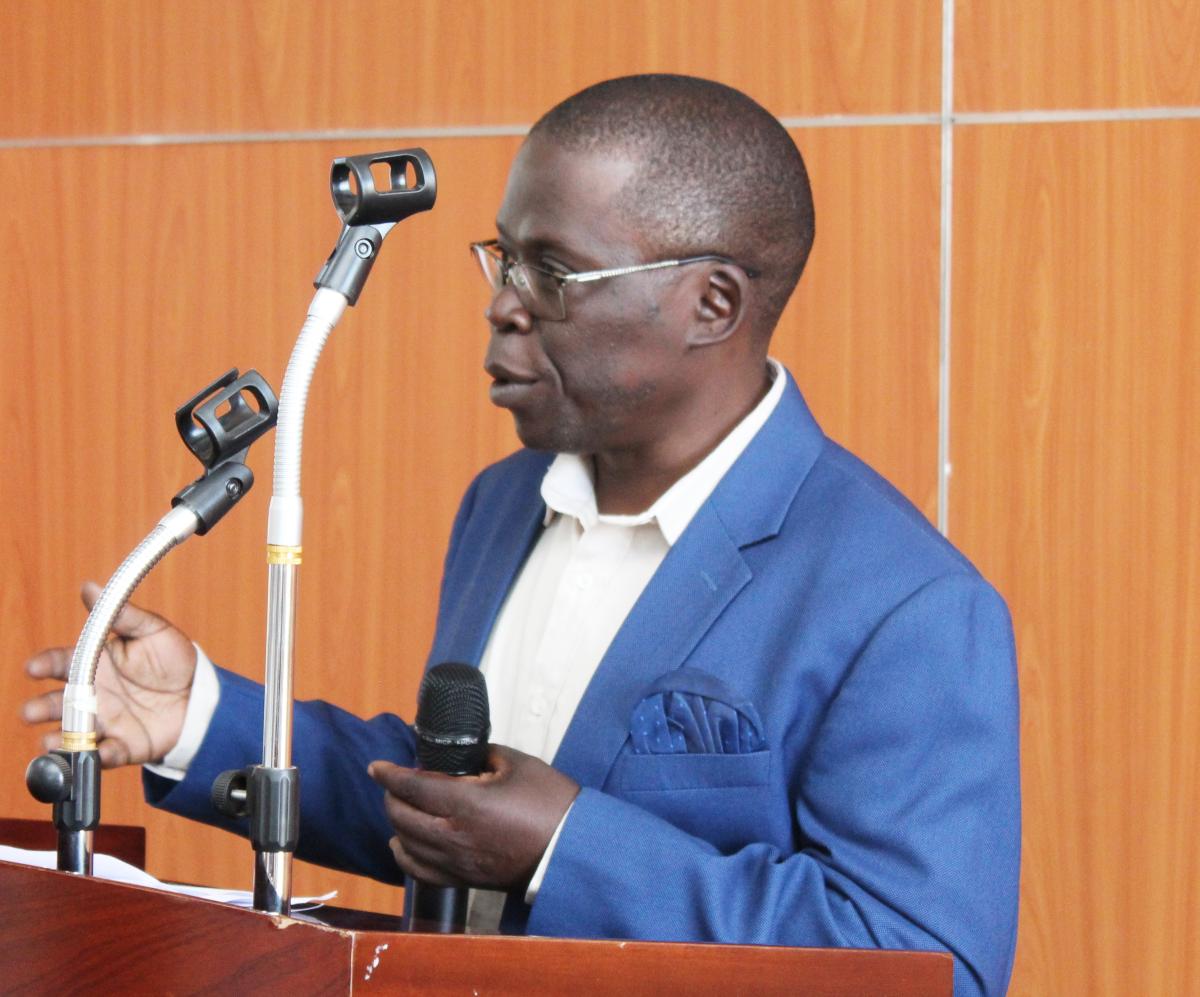
Whereas Makerere university has a number of systems, these have not been addressing a number of issues such as the ability to track and consolidate information in various schools and the Graduate school.
As the university moves towards being research led, the Directorate of Graduate Research and Training (DGRT) and the Directorate for ICT Support (DICTS) have embarked on developing a tracking system that will help collect and consolidate information about all research in the university, the researchers and graduate students generally.
With support from the Makerere University Research and Innovations Fund (MakRIF), DGRT received the needs -based - funds for a project called, Research Information Management System (RIMS).
The project which commenced about six months ago will collect information about all staff involved in research, about the research they are doing, what areas, to make up the research agenda of the university.
On the side of graduate students who are research students, the Directorate would like to have information on where they are in their research so that they can be tracked.
 This initiative was disclosed by the Deputy Director, DGRT Associate Prof. Julius Kikooma while speaking at the opening of the three-day CHUSS 2023 Graduate Supervisors induction workshop at Essella Hotel on 18th April 2023.
This initiative was disclosed by the Deputy Director, DGRT Associate Prof. Julius Kikooma while speaking at the opening of the three-day CHUSS 2023 Graduate Supervisors induction workshop at Essella Hotel on 18th April 2023.
Prof, Kikooma was invited to present on the general rules for graduate studies at Makerere University and the Research Ethics and guidelines for information and use by supervisors of graduate students.
Kikooma said, one of the key problems in the Directorate has been information about research and researchers and graduate students generally in the way they are handled and scattered. The system he said will track every process about researchers in Makerere University both academic and graduate students.
“The system will support us to have all information about graduate students in one place so that we can be able to address key questions because we have never been able to develop a system that can quickly tell us beyond those students who have completed course work, and where they are”.
It will be possible to know that if a student had a two-year program, and they completed their course work, when did they complete it, when did they start a research proposal, where is it, was it approved, if it was approved, are they doing field work and if it is field work, when was it approved, who are their supervisors etc?”
Noting that the Directorate is a coordinating unit for graduate training with the actual work on graduate students in terms of teaching and supervision taking place in the schools. Prof. Kikooma said, the system will be helpful in terms of record keeping and reduction of reliance on information in hard copy files.
“Meaning that while we have a file for these people because we admit them, the school also keeps hard copy files of the students and sometimes depending on what is happening to the student at what level, the school may have information but which we do not have. And therefore we have been missing a system that can help us all consolidate that information about students and researchers”. He said.
The system according Prof. Kikooma is being designed to ensure that what is held on ACMIS system is the same as what is held on RIMS of the DGRT so that there is no conflict of information for different management purposes. The ACMIS is for the academic registrar’s department which is mainly registration, but RIMS will be for all processes about research for staff and graduate students.
Two weeks ago, Prof. Kikooma said, the Directorate carried out a stake holder consultation where they tried to pilot some of the modules of the program. The different users of this information system gave feeback and the system experts were revising it.
It is hoped that in the next two-three months, the system will be rolling out the first modules.
Graduate supervisors’ induction training a good development
Kikooma commended CHUSS for initiating the program for retooling graduate supervisors saying, it is supposed to be a practice for a graduate school.
The capacity for supervisors should according to Kikooma continuously be built. As DGRT, he encouraged colleges to work with the directorate to ensure that every year supervisors are given some kind of refresher regarding what they are supposed to do as supervisors.
“It is one of the best practices for capacity building and colleges should go ahead to organise them tailored to their specific needs.
The way things happen in the world of academia, research and theory keep changing and so, it is right that continuously, there is a time created where supervisors are taken through some of the new developments, thinking, and how to support graduate students”. He added.
He urged participants to acquaint themselves with the university graduate handbook where different policies and guidelines are put together. The university has a current Graduate Handbook 2013 but the directorate is undertaking an exercise of revising it. The draft he said, will in two to three weeks be presented to the Board of Graduate research for approval and eventually to Senate.
 CHUSS Coordinator for Graduate programmes Dr. Saidi Ssekito said the idea to have the Graduate supervisor’s induction trainings emerged last year when some staff enrolled on a similar program in the university.
CHUSS Coordinator for Graduate programmes Dr. Saidi Ssekito said the idea to have the Graduate supervisor’s induction trainings emerged last year when some staff enrolled on a similar program in the university.
While enrolment and graduating numbers of PhD and Masters students were increasing in CHUSS, Dr. Ssekito said, the number of staff was constant or reducing. In many departments many staff were retiring and leaving but not replaced.
At the same time, the college had over 40 Assistant Lecturers with PhDs, yet to be a graduate supervisor, the policy allows those at a rank of Lecturer.
“Some of the PhD Assistant Lecturers had applied pending promotions and as they kept on waiting, the college management bought into the idea and organised induction training to take them through what a graduate supervisor should do.
We want to be taken through the issue of graduate supervision training as a pedagogy. We are here to be trained as we wait for promotion so that we can be legally allowed to be graduate supervisors”. He said.
The 2023 Graduates supervisor’s induction workshop brought together over 40 Junior staff facilitated by officials from the Graduate school and the College of Education and External Studies.

On day one, Dr. Peter Ssenkusu handled the aspect of Graduate supervision and knowledge production, a pedagogy and the Trainees Expectations.
Dr. Dorothy Ssebowa presented on Graduate student’s experiences of graduate supervision at Makerere or in other University while Dr. Betty Ezati handled the aspect of the roles of Heads of departments, Deans and Principals in the management of Graduate Training and Supervision at Makerere University.
Presentations are attached.
